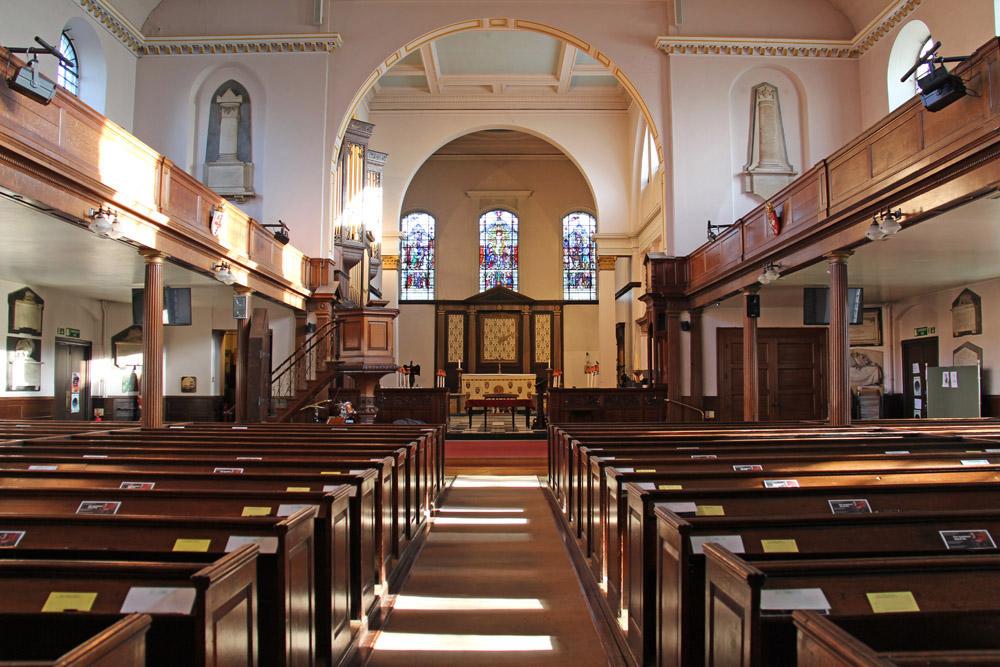St Michael Cornhill
City of London, Greater London
The church lies over the remains of the Basilica, the northern most part of the great Roman Forum built in the first century AD.

Opened for worship in 1776, the church is most famously associated with William Wilberforce and the group of friends known to history as 'the Clapham Sect'.
Clapham, Greater London
Holy Trinity Clapham opened for worship in 1776, the same year as the American Declaration of Independence. A plain, simple building, it reflected the calm spirit of those rational and enlightened times.
It is the new Parish Church of Clapham. An old church had existed since the middle ages, in Rectory Grove, where St Paul’s Church now stands. It had grown over the years in a haphazard sort of way, and by the mid 18th century was in a poor state of repair and far too small for what was by this time one of the fastest growing villages round London. After much debate, the parishioners decided to build a new church on the Common.
The Trustees chose as their architect Kenton Couse who provided a very simple design, a rectangular brick building with three doors at the west end, leading to the ground floor and galleries. There was a stubby tower, with a large clock from Thwaites of Clerkenwell, and four bells. When John Venn became Rector in 1792, the seats in the nave were high box pews, for which their occupiers paid rent.
In 1875, these were reduced in height and converted into the present bench pews. The big three decker was cut down and the pulpit, all that survives from it, moved to the north side of the church, to allow room for a choir. There was a new font at the west end in a sort of medieval style, the novelist EM Forster was one of the first to be baptised in it. Those changes left the overall shape of the church unchanged. But by the late 19th century it was seen as ugly and in 1903 the east end was reconstructed and considerably enlarged. The architect was a distinguished scholar, Professor Arthur Beresford Pite.
During the Second World War, the church sufered serious damage; all the windows were destroyed, the Lady Chapel gutted, and the main roof near to collapse. Restoration was completed by 1952.
Holy Trinity is associated with the group of friends known to history as 'The Clapham Sect'. They lived around Clapham Common and worshipped here. As devout Christians, they fought for religious and humanitarian causes, notably the abolition of the slave trade. Their campaign was led in Parliament by William Wilberforce, and in 2007 we celebrated the 200th anniversary of the passing of the Act to Abolish the Slave Trade. But they took up many other causes; the heritage they have left us includes the Church Mission Society and the Bible Society. Their standards of integrity left a lasting stamp on this country’s public life.
City of London, Greater London
The church lies over the remains of the Basilica, the northern most part of the great Roman Forum built in the first century AD.
City of London, Greater London
The Dutch Church is a reformed church on the site of the 13th century Augustinian friary, the original building granted to Protestant refugees for their church services in 1550 was destroyed during the London Blitz.
Marshfield, Gwent
Mae Eglwys St Mair, Maerun, yn eglwys brydferth sy’n dyddio nôl i’r ddeuddegfed ganrif. Yn nythu’n glud yn y llain las rhwng Caerdydd a Chasnewydd, mae bellach yn adnabyddus am fod yn lleoliad ar gyfer un o episodau Dr Who!